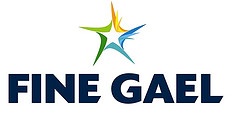 Enda has pulled out a lot of stops including, perhaps, pulling in the odd favour from an old friend. His big mistake was trying to take out his capable deputy, Richard Bruton (though to be fair, he may not have had much choice by that stage). In parts it carries the smack of desperate injustice, or at least a very bad metropolitan dose of inveterate culchie hating…
Enda has pulled out a lot of stops including, perhaps, pulling in the odd favour from an old friend. His big mistake was trying to take out his capable deputy, Richard Bruton (though to be fair, he may not have had much choice by that stage). In parts it carries the smack of desperate injustice, or at least a very bad metropolitan dose of inveterate culchie hating…
Kenny managed not only to pull together a party decimated by under the leadership of Michael Noonan in the 2002 general election, and land them another 20 last time out. In Kenny has led the party through a procession of electoral success, not simply the Dail, but at the local elections in 2007 and at last year’s European elections in which they returned five out of Ireland’s twelve MEPs.
It’s this deep well of resource that has led many of his party to back him long after it has become obvious he has lost the confidence of many (too many) of their party colleagues. He has also assembled a front bench which is considerably younger than any of the other parties in the current Dáil Éireann. It’s a crying shame for him (and some measure of his failure to lead from the front) that their loyality to the man who put them there is so paper thin.
As Splintered notes, Kenny’s situation appears even worse than John Major’s a couple of years out from 1997 election. The bastards are closing in in advance of tonight’s meeting of the parliamentary party. Elaine Byrne points to the latest of those geographical breakdown’s of the Irish Times polls, so you can see the root of the party’s anxieties where Adrian Kavannagh tots the poll numbers up like this: FF 40; FG 55; Lab 54; Grn 0; SF 11; Others 6.
As Elaine notes:
Although their situation is not as dramatic as Fianna Fáil’s, Fine Gael’s core constituency is becoming more rural and older in character. It does best among the 50-64 age group and the over-65s while its weakest category remains the 25-34 age group, according to the January poll.
And she deftly defines the party’s dilemma over a few sentences:
Pragmatism is the new dogma for a parliamentary party that has little collective experience of power. One prominent Fine Gael TD at the wedding said that his decision would come down to the fact that 55 per cent of the population are Leinster-based, with two-thirds of Irish people now under 44 years of age.
“This is not about whether we’ll get into government but the difference between 55 and 75 seats,” said the TD. “Enda believes in this west of Ireland, crossing the Shannon gobshite mentality” noted another very frustrated TD, “where he’ll bring back the title of taoiseach as if it were the bloody bacon to Mayo. Connacht nonsense.” [emphasis added]
And as Michael Gallagher points out at PoliticalReform.ie, changing leaders is not any guarantee of success (in the opinion polls at least):
…the 2002 election study (see The Irish Voter) suggested that party leaders have at most a marginal effect on voting behaviour, shown also by the high personal ratings both Mary Harney and Gerry Adams have had at various times in recent years without this seeming to make any difference to their respective parties’ support levels.
The point here is that Fine Gael’s problem not just about changing the leader per se. It is more to their apparent lack of conviction and shift from pragmatism to some form of tangible belief.
Thus Fiana Fail are buoyed on the belief that they are the only ones competent enough to run the country. Their ‘tough decisions’ narrative runs non stop and ad nauseum. Their opponents may think it’s a crock of horse dung, but it will count for some return of the voters simply because they think they know what they are getting.
Labour are, Fine Gaelers complain, unbelieveably light on policy, which is probably true to an extent. But voters love it when Eamonn Gilmore, armed with nothing more than a steely and a copy of the latest live register figures skewers those three Pantomime villains Cowen, Coughlan, and Harney as they squirm listlessly on the Dail’s front benches.
Gilmore leaves the electorate in no doubt who they should blame for the awful mess the country is in.
If Kenny goes tonight (after failing to up his game several times, even before the 2007 election), then Bruton will not only have to up his party’s game, he will have to define it in ways that always seemed beyond Enda Kenny. That’s not a question of policy, nor even of personality. But of offering the Irish electorate a serious alternative to what’s on offer now.
Right now, they are headed for a two headed coalition with Labour. Structural advantage and a natural bounce back to FF from Labour may take the sting out of that nightmare by 2012. But in the meantime, Kenny, Bruton or whoever will have to decide what they stand for (other than being Taoiseach) and stick to it.
Mick is founding editor of Slugger. He has written papers on the impacts of the Internet on politics and the wider media and is a regular guest and speaking events across Ireland, the UK and Europe. Twitter: @MickFealty
Discover more from Slugger O'Toole
Subscribe to get the latest posts to your email.
